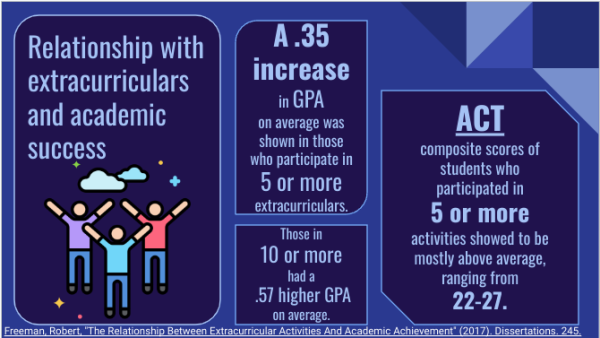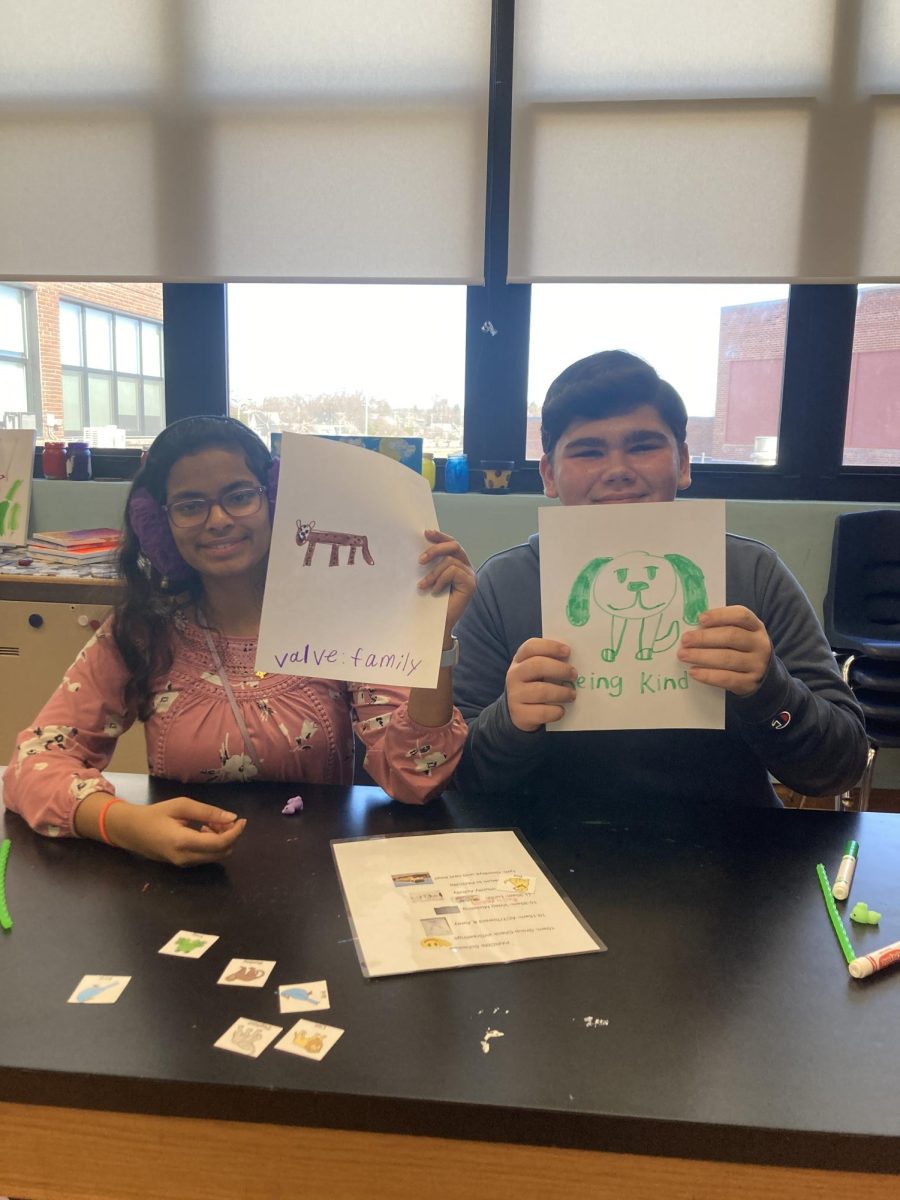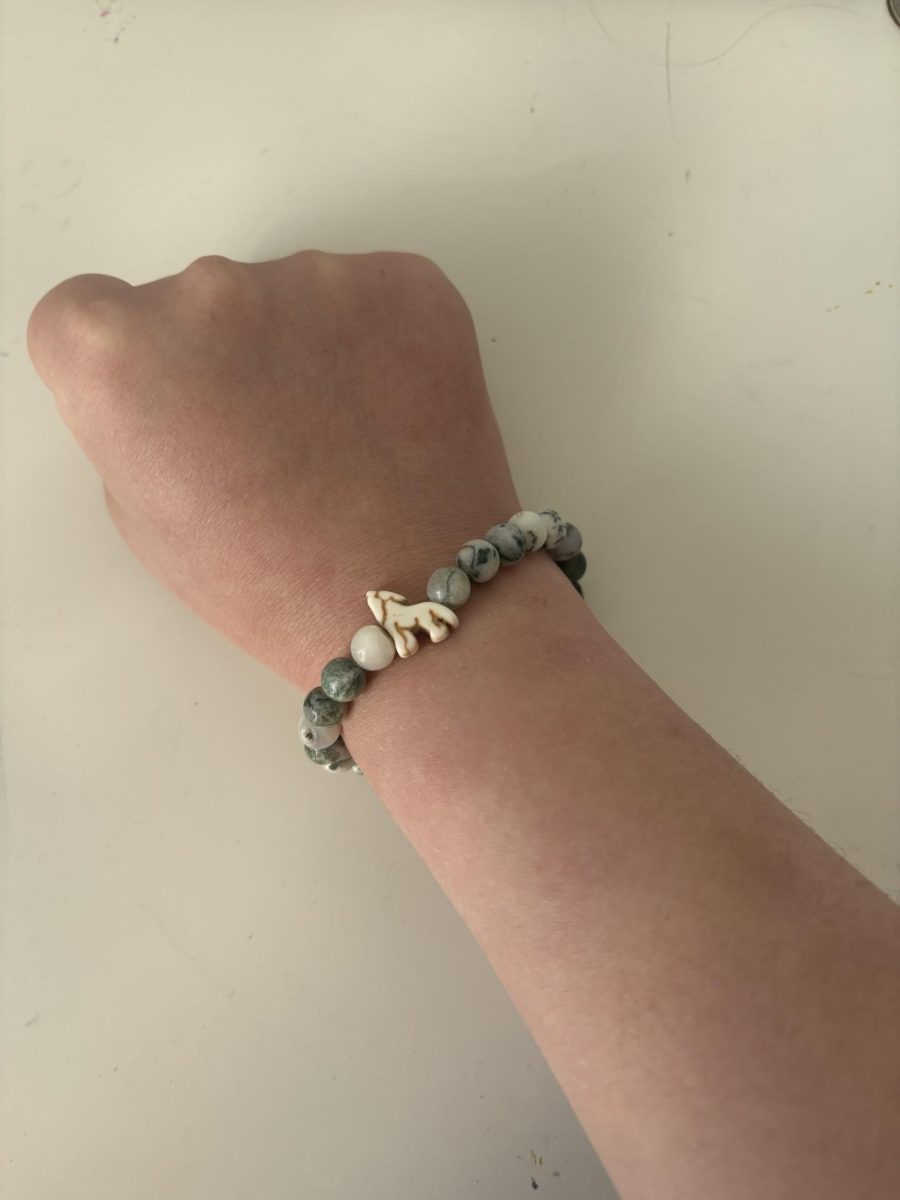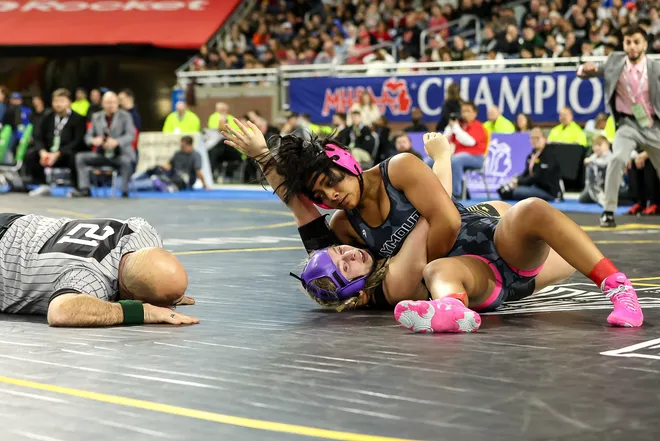As the students in the Comic Club finish getting their booth set up for a craft show, they take a step back to admire the work they have done. Together, they accomplished so much as they prepared for the busy day of business ahead of them.
Preparing for such an event takes teamwork, time management and leadership skills. Most are not born with these skills, but instead some have to learn them through experience.
Sam Wegrzyn, Plymouth sophomore and member of the Comic Club has the club’s events and other club activities prepared for the rest of the year. When everyone is in the know, it lets the club run more efficiently
Participating in extracurricular activities benefits both those in the leadership role as well as for the peers working with the student leaders.
E-sports club advisor and special education teacher at Plymouth Eddie Lee noticed improvements in his club members firsthand. “I think for a few of my students, especially the ones that a re extra passionate about [the club] and are kind of leaders in that group. I think I see them growing a lot in character and leadership skills.”
re extra passionate about [the club] and are kind of leaders in that group. I think I see them growing a lot in character and leadership skills.”
Chaka Johnson, the athletic director at Plymouth High School, says there are great benefits involved in being a part of extracurriculars. “Time management and social skills are huge. Those are some of the things that you organically get when you’re in a leadership position.”
But it’s not just leadership skills that are developed within these extracurriculars. “In general, students that are in those clubs are doing a little bit better academically,” says Johnson.
In 2008, a study conducted by Dr. Carol Johnson at the University of Wisconsin-Stout found a dramatic difference in students and their grades depending on their participation in extracurriculars or not. “Students who took part in three or four extracurricular activities during the academic year have dramatically better grades than those who have not participated in any extracurricular activities at all.”
For some, multiple extracurriculars may not be the right option, but benefits still can be gained from participating in one activity. Lee states, ”Listening skills are improving for sure, they are a lot more willing to get feedback from people [when they communicate].”
Sometimes it’s not just the course work that makes students want to come to school, it could be the extracurriculars. Lee says, “[Extracurriculars] gives us a reason to come to school on Monday.”
For students interested in joining a club, visit the P-CEP Clubs and Activities list with contact information and descriptions.









